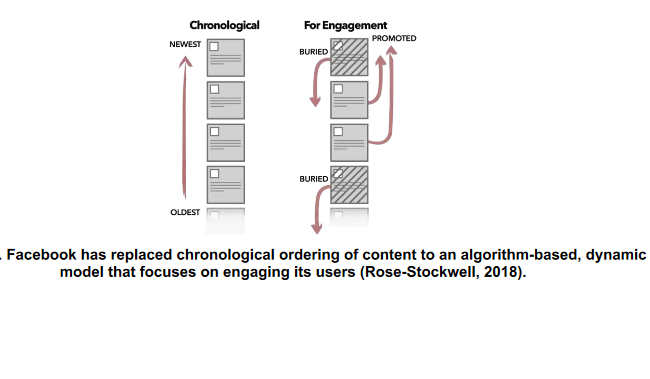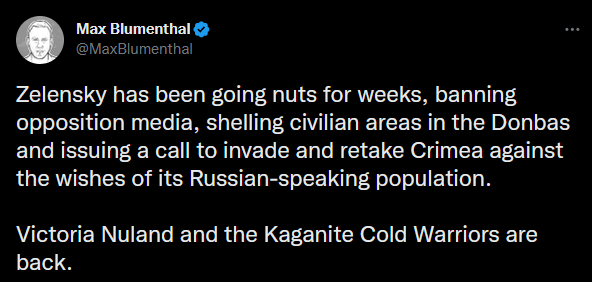In today's #vatnik soup I'll theorize what's happening with Twitter after Elon took over. As with all social media platforms, Twitter's algorithm is their best-kept secret and there is very little public information available on it.
1/14
1/14

Like other social media algorithms, Twitter's is probably powered by a machine learning (ML) components which means that it's constantly changing its behavior. It gets "training data" from the 900 million daily tweets posted on the platform.
2/14
2/14
Social media ML algorithms are extremely complex, and engineers from Google and Facebook have said that they sometimes have hard time understanding their own ML algorithms:
vice.com/en/article/y3p…
3/14
https://twitter.com/ajkohn/status/705507890841255936
vice.com/en/article/y3p…
3/14
On 24 Mar, 2022, when Musk was still planning the purchase, he held a poll about making the whole algorithm open source:
I very much doubt that this will happen - there are two elements that make a social media platform successful:
4/14
https://twitter.com/elonmusk/status/1507041396242407424
I very much doubt that this will happen - there are two elements that make a social media platform successful:
4/14

1) its algorithm, and 2) critical mass to make the platform lively.
So how does Twitter prioritize content? Instead of ordering tweets chronologically, it shows tweets dynamically based on various factors - who do you follow, whose tweets you've been reading, etc.
5/14
So how does Twitter prioritize content? Instead of ordering tweets chronologically, it shows tweets dynamically based on various factors - who do you follow, whose tweets you've been reading, etc.
5/14

If you read some of Max Blumenthal's or Lauren Boebert's tweets out of curiosity, Twitter may show you more of this type of content. It of course prioritizes tweets from people you follow, but sometimes it makes these "detours" that change your Twitter feed.
6/14
6/14

Now, a bit of theorizing: I think that the algorithm was changed after the Russian invasion so that it would prioritize Ukraine-related content. This content was seen more often, gained more exposure, likes, re-tweets, etc.
7/14
7/14

This theory is supported by my own data, showing that engagement dropped by around 40%. This phenomenon was also supported by other, much more popular people:
8/14

https://twitter.com/JuliaDavisNews/status/1599834986713972736
8/14


I would also imagine that some more strict rules for prioritizing content related to COVID-19 were integrated during the first year of the pandemic. This was - based on my theory - done to control the spread of disinformation related to the pandemic.
9/14
9/14

So, I don't believe that Twitter started suppressing Ukraine-related content, but removed its prioritization instead.
Also, I don't think the Twitter Blue does anything yet, as Julia Davis, who saw a drastic drop in engagement, already has it.
10/14
Also, I don't think the Twitter Blue does anything yet, as Julia Davis, who saw a drastic drop in engagement, already has it.
10/14
Of course it's up to Twitter to decide if they want to boost specific type of content or not - as a private company they can "take sides" if they want as long as they follow the law.
One of the first promises of Elon was to get rid of Twitter's bots ...
11/14
One of the first promises of Elon was to get rid of Twitter's bots ...
11/14
... but the problem is not the bots, but the organic troll farms. Actual people are propagating and spreading state- and corporation-sponsored areas en masse, and these troll armies use brigading, spamming and spreading of disinformation as their weapons.
12/14
12/14

In one of my earlier soups I predicted that disinformation will spread faster and wider with the changes that Musk has made. I think that the more recent changes and Elon's tweets reinforce this prediction. Many known disinfo spreaders have also been reinstated on Twitter.
13/14
13/14

Elon hasn't made any comments about troll farms either, probably because it's such a huge problem that it's almost impossible to tackle.
My related soups:
Troll farms:
Manipulation:
Twitter Files:
14/14
My related soups:
Troll farms:
https://twitter.com/P_Kallioniemi/status/1601115023589658624
Manipulation:
https://twitter.com/P_Kallioniemi/status/1605106747575771138
Twitter Files:
https://twitter.com/P_Kallioniemi/status/1601540081281474560
14/14

• • •
Missing some Tweet in this thread? You can try to
force a refresh

































